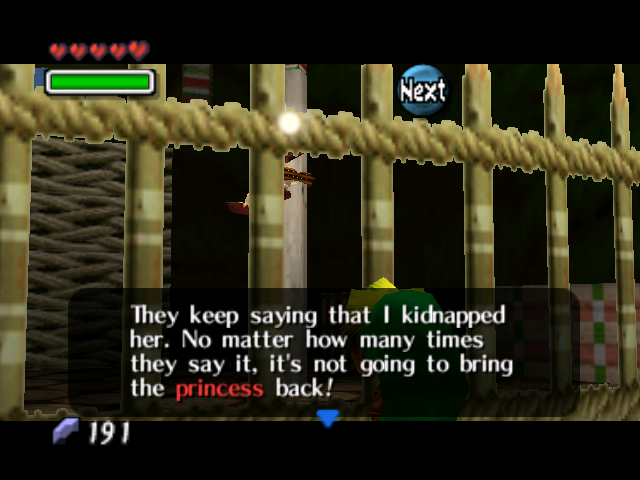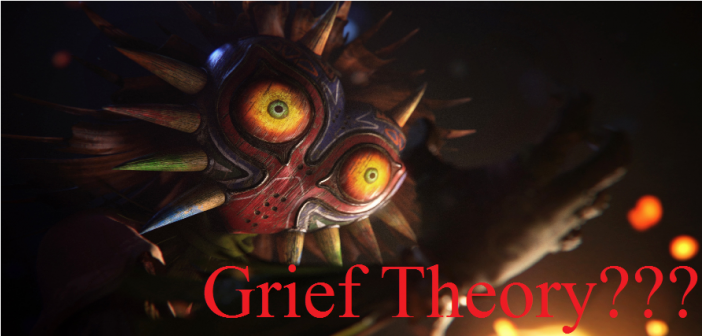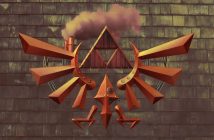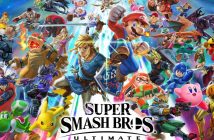Disclaimer: This article was written by a member of the Hidden Triforce team. The information, opinions, and beliefs displayed in this article belong to that of the author and do not represent the Hidden Triforce as a whole.
The Legend of Zelda: Majora’s Mask is a staple in the Zelda series for having a more mature, urgent, dark tone. When it was released in 2000, just two short years after Ocarina of Time, it was a large, open world game; filled with many side quests and characters. However, details were very slim for this game, and explanations were shallow. With the lack of details provided, gamers dug deep into Majora’s Mask, in an attempt to find its true meaning, to answer their questions themselves. With this digging, dozens of theories emerged. The most significant one; Link is dead and the areas of Termina represent the 5 stages of grief (denial, anger, bargaining, depression, acceptance). With further research, it can be proven that the areas of Termina do, in fact, represent grief; just not the grief of Link’s death. It is instead the grief of his past life. Why? Let the facts show you:

Clocktown, the center of Termina, is the first thing Link walks into after meeting with the Happy Mask Salesman for the first time. It is meant to represent stage of grief number one, denial. When first seen, it is a busy, bustling town full of happy occupants, and playing children. Carpenters are hard at work on the Carnival of Time, discovered quickly by asking around town. While everyone is running around living life, a moment is taken by Link to look into the sky; only to be greeted by a terrifying moon (with an evil face) awfully close to the ground. This town is the ultimate example of denial, because while everyone is excited for the Carnival of Time, it can’t simply be ignored that the moon is falling closer to the clock tower by the day. Even the mayor is in denial, deciding it best for troops remain in town as opposed to fleeing with their families, due to his main handyman yelling “You cowards! Do you actually believe the moon will fall?” Even those townsfolk who choose to flee remain in denial, believing that it is as easy as leaving town to save their lives, then return to a normal life.
South of Clocktown, The Deku Palace can be found. The stage of grief found here will be anger, a lot of it. Link first finds the Deku king, who is bouncing with anger at his throne over the disappearance of his beloved daughter, the Deku Princess. In his anger as well as his peoples’, he kidnaps the monkey last seen with his Princess, tying him up in a cage with threats of being boiled in hot water. While the king is upset about his daughter, the monkey is also just as frustrated. The Deku King is so blind with rage, he can’t hear the monkey tell the truth; his daughter is safe in the temple. Finally, once Link saves the Deku Princess, she becomes furious that her father lost his judgement in his anger, as the monkey is actually her friend. A never ending cycle of anger takes place in this kingdom.

Heading southward from Clocktown now, to Snowhead. Bargaining (or begging) is the stage of grief that is proven here, especially in their state of grief themselves. Before Link shows up, the Goron hero Darmani passed away trying to appease the boss in Snowhead Mountain himself. However, Link acquires the Lens of Truth, allowing him to see Darmani’s ghost; listening to his plea. He begs for a way to help him regain his power to save his people, resulting in the Song of Healing creating the Goron Mask. Returning to Goron City, the older population was left in charge of the Goron Elder’s Son. Through his cries for his elder father who had just left to help his people, the Goron people beg for any kind of silence and relief to their ears. In conclusion, the Goron Elder begs Link (believing he is Darmani) to save his people once and for all. It seems here almost everyone here has a want they are willing to bargain for…
Over at Great Bay of the Zoras, the depression stage sticks out greatly. Link enters this area witnessing the death of a zora, whom he creates the Zora Mask with, giving a proper burial as well. This sets a whole depressive vibe, not to mention how purely sad singer zora Lulu is, having just lost her first eggs to the sea pirates. This upsets her whole band; without Lulu’s voice they won’t be able to play the Carnival of Time. Although this was all happening at Zora’s Cape, word of the band canceling was delivered to Clock Town’s Mayor’s wife, then to Showman/Farmer Gorman. This made him furious and depressed, resorting him to the Milk Bar for the remainder of the game.

In the end, all that is left is acceptance in Ikana Valley, best shown by the king himself, Igos du Ikana. Once Link defeats him in the fallen remains of his throne room, he is able to accept that his kingdom has fall many years ago and he is no longer the great king he once was. He accepts fate, he accepts defeat, and he accepts death all right before Link’s eyes (and sword). He teaches the young hero the Elegy of Emptiness, the only thing that made it worth staying in his kingdom, and rises away. This leaves Link alone, in the large throne room, to take in all he had just done/witnessed. This is a perfect time to reflect on the last game, or rather Link’s old life.
It has become time for Link to get pass all the stages of grief and finally accept what his life is now. Navi, his childhood friend and fairy, was gone. When he first came to this land known as Termina, he lost his trusty steed, Epona, and was transformed against his will to a Deku Scrub. Princess Zelda, his home, and Hyrule are gone now, but he must accept that now Termina needs him, and he was brought here to save this world.
Thank you for reading! Let me know how you feel in the comments! Don’t forget to leave a like! -Paige (author)



